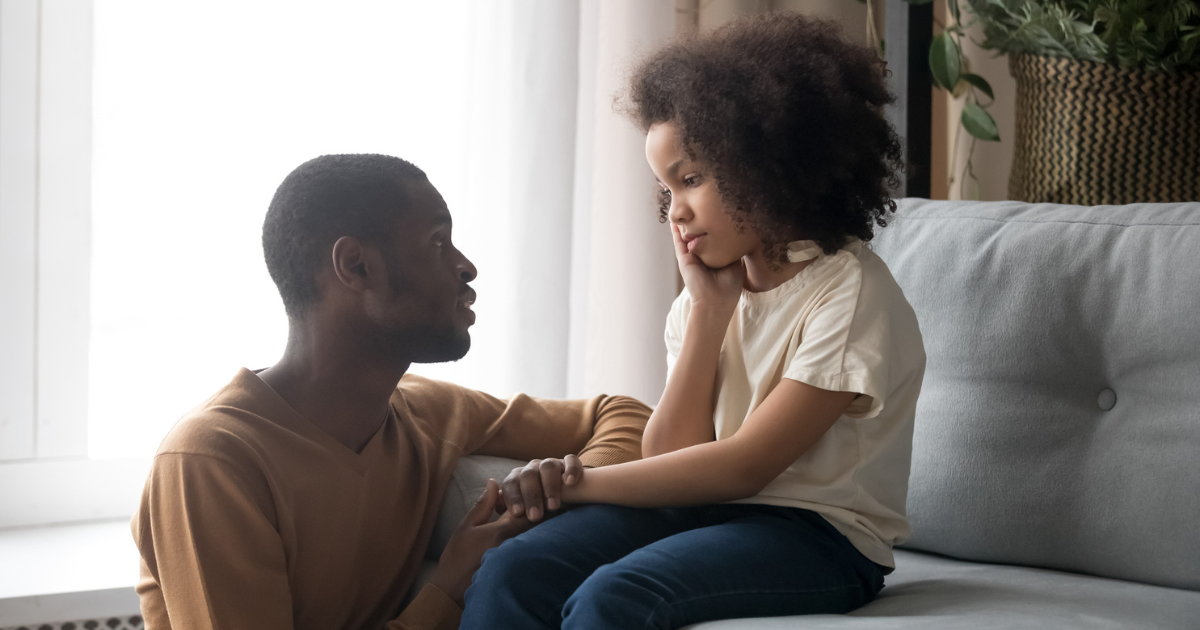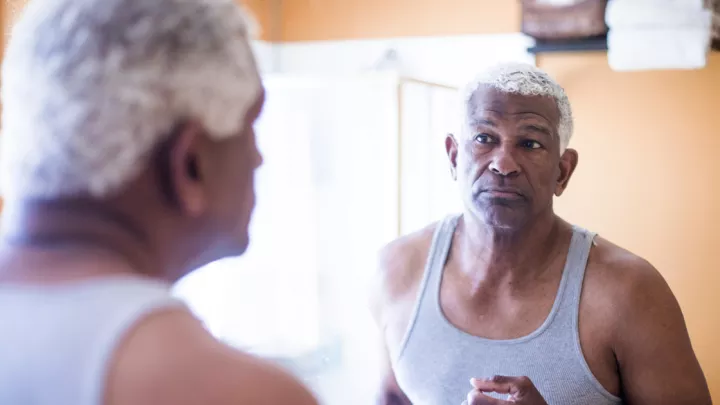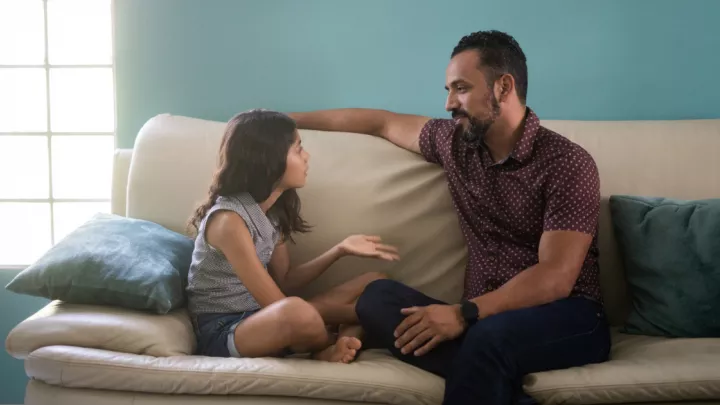How do you tell kids a family member has cancer?

Talking with children about a cancer diagnosis can be difficult. Sometimes, parents may try to protect their children by limiting the information they provide out of fear, worried the conversation may scare them or make things worse.
Kids may not know what’s happening but will sense something has changed. All ages can feel the impact of illness in the family, and feeling like there’s a secret can cause more confusion and worry for them. By having honest conversations, you let them know they are trusted family members who can ask questions and express their feelings honestly.
How to talk to kids about a cancer diagnosis
Every family is different, and there’s no “one size fits all” approach. Prepare yourself before talking with your child, and think about what questions they may ask. Choose a time when you’ll not feel rushed or interrupted and when your child is not tired, hungry or stressed. Consider your child’s personality and use words they will understand.
When you share a cancer diagnosis with children, it is best to share three important things:
- The name of your disease.
- That you are seriously ill.
- Your understanding of what may happen, including treatment and possible physical changes.
Eight communication tips and tools for sharing with kids
- Be honest at all times. While you may not share all the details right now and may share in pieces over time, children know when something is happening and need the truth. Tell them that any question they have is OK to ask and that you’ll do your best to answer them.
- Call the illness what it is. Using the term “cancer” makes it clear that you’re not just dealing with a common sickness like a cold or flu. This helps the child to know that the cancer is not contagious. Explain to them in the simplest, age-appropriate terms what cancer is and how it will be treated.
- Your presence makes a difference. Even if communication seems difficult for the child, being present with them can help create a comforting and secure environment. Let them know that it’s OK to cry or be scared.
- Reassure them that it is nobody’s fault. Children tend to believe bad thoughts or actions might have the power to cause illnesses. This is called “magical thinking.” Assure them that no one, including them, caused the cancer.
- Try to keep life as normal as possible. School, activities and other daily routines are essential for maintaining a sense of normalcy, safety and security in their lives. Consider asking relatives and friends to help. Decide to maintain family standards and parental authority while reminding kids that it’s their job to be kids.
- Avoid making promises about things out of your control. Reassure children that doctors, nurses and the family will do everything possible to make the cancer go away. Stay hopeful and reflect that hope to your children.
- Be prepared for children’s questions about death. Children wonder if someone they love with cancer will die. Be prepared to approach these questions with positivity. While no one knows what will happen to anyone for sure, many people with cancer live, and everyone is doing their best to beat it.
- Keep the lines of communication open. Share appropriate updates with your child so they feel informed. This lets them know you are open and including them as a valued part of the family. This provides comfort, a sense of security and ongoing support.
How sharing a cancer diagnosis with children may impact them at different ages
Many things factor into a child's understanding and coping after a cancer diagnosis, including their age and development, family dynamics, temperament and prior experiences. Children often tell us what they are worried about through their actions when they don’t know how to express their anxiety.
Infants and toddlers
From birth to 2 years, children don’t have an understanding of cancer but may sense changes in routine and the behavior of those around them. You may see more tantrums than usual, changes in eating or sleeping habits or separation anxiety in response.
Preschool Age
From age 3 to 5 years, children will have some understanding of common illnesses but little about severe illnesses like cancer. You may see regression, such as bed-wetting after potty training, outbursts of emotion, asking questions they’ve asked before, separation anxiety or magical thinking.
To help, remember to:
- Explain cancer on a child’s level.
- Use dolls or puppets to help children play through their feelings.
- Stay within their attention span and ability to understand.
School Age
From age 6 to 12 years, children can typically understand the difference between a common illness and something like cancer, but they may have misinformation about it. Misinformation may include thinking the cancer is contagious or that a person with cancer will die. Common behaviors may range from regression, magical thinking or separation anxiety to showing anger, worrying, hiding feelings or distancing themselves.
To help, reassure them that:
- Nothing they did caused the cancer.
- They can’t catch cancer.
- They will be taken care of and loved no matter what. Share who will help take care of things.
Teenagers
From age 13 to 18, teens are likely to have a basic understanding of cancer but may have misinformation about it. You may see them struggling to share feelings or not share at all. They may show anger if daily routines are disrupted, taking out their frustrations on others or acting embarrassed.
To help, try helping them by:
- Giving detailed information and answering every question thoroughly.
- Making sure there is someone outside of the family they can talk to on an ongoing basis.
- Not forcing them to talk about the cancer diagnosis, but being prepared for any time they are ready to talk.
Seek outside support if you notice behaviors that concern you, such as extreme behavioral changes, isolation, difficulty at school, losing interest in activities they used to enjoy, or expressing a desire to self-harm. You don’t have to go through this alone.
Nebraska Medicine Resources
The Life Renewal Center at Village Pointe and the Resource and Wellness Center at the Fred & Pamela Buffett Cancer Center help patients and families navigate through the cancer journey.







